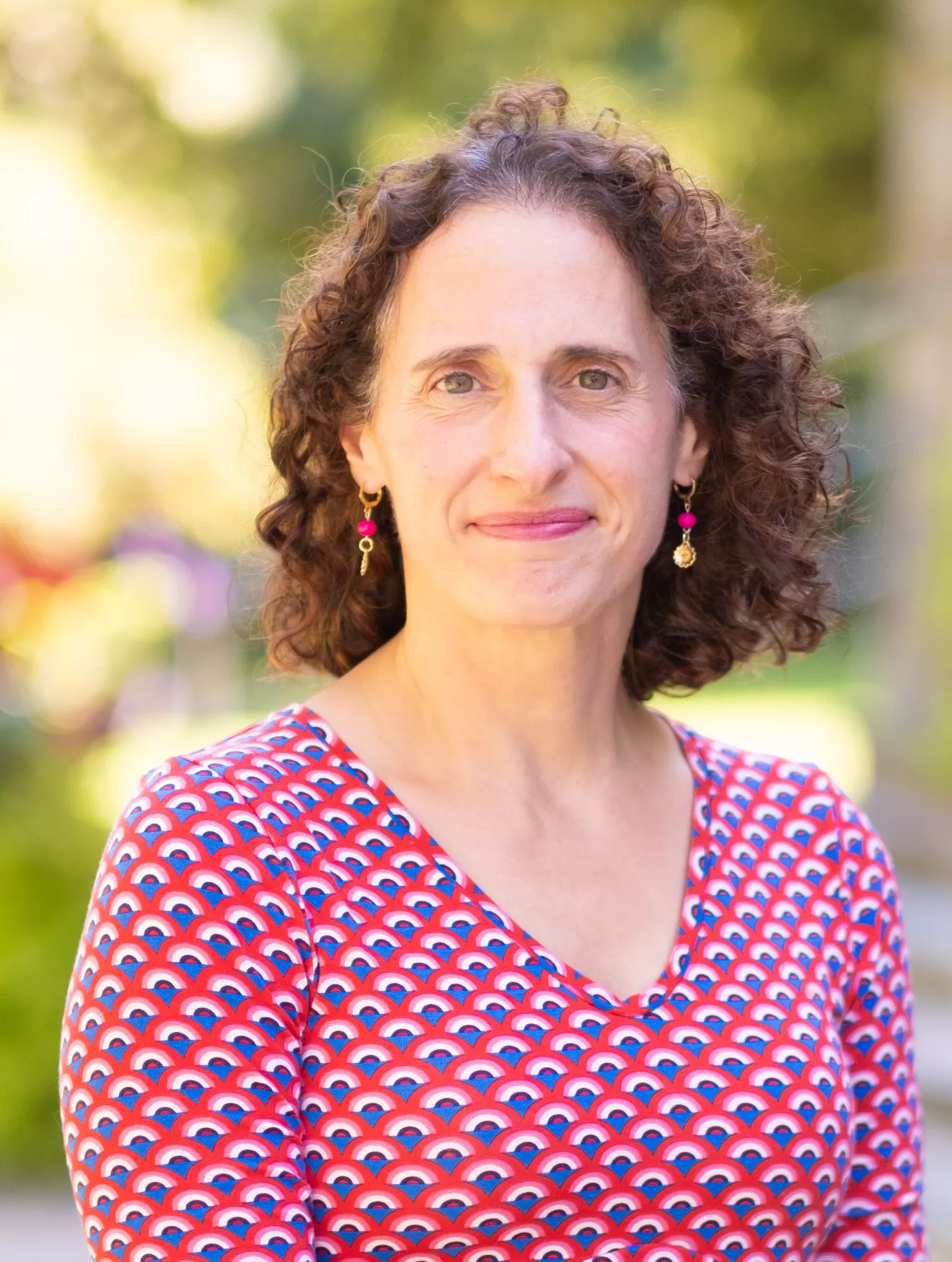
Cindy Sousa, professor and co-director of Bryn Mawr’s Center for Child and Family Wellbeing, is working to center the role of social work in the lives of those experiencing war and political violence globally.
For decades, Professor of Social Work Cindy Sousa has investigated how war affects civilians, particularly families. Working at a youth program early in her career cemented Sousa’s interest in international social work. Sousa spent time with primarily immigrant and refugee teens involved in the criminal justice system or in foster care, who shared their experiences with her, opening up about the traumas they endured in their home countries. Through this field work, Sousa realized how important it is for social workers to be equipped to handle issues regarding global atrocities.
“I was maybe two years out of undergrad when I started putting things together, realizing that social work needs to think about the way global conflicts – that we can feel so far away from – are actually really close to us,” says Sousa. “Not just because there is great need for social work in these areas, but also the U.S. is often involved in global conflict. Everything is connected.”
Amidst the ongoing war in Ukraine, Sousa joined the efforts of Nataliia Gusak, Ukrainian social worker and previous faculty fellow at the Center for Child and Family Wellbeing, and James Martin, professor emeritus of social work at Bryn Mawr, to provide support and assistance to their global colleagues on the ground in Ukraine. Beginning in the summer of 2022, the team collaborated to create professional development seminars for social workers in Ukraine and published “Building Social Work Capacity in Ukraine in Times of War: The Role of Global Social Work Engagement.” They developed an eight-week agenda delivered virtually that provided training and created a community of practice, shared goals and methods among social workers serving Ukrainians in Ukraine.
“A big part of social work is the stuff people don’t see as much,” says Sousa. “A lot of our work includes training folks on the ground, evaluating services, or doing needs assessments and seeing where we can fill the gaps. We work with agencies around the world to figure out the needs of their communities and strategize about what interventions might address these needs.”
The team conducted interviews to evaluate the effectiveness of the seminars and is now analyzing the data to understand the perspectives and challenges international communities face. The team has already begun to share the research, with publications in the Journal of Human Rights and Social Work and International Social Work, and presentations at the Center for Child and Family Traumatic Stress at Kennedy Krieger Institute 9th Biennial Trauma Conference and at the 2024 Society for Social Work Research. Current GSSWSR doctoral students Kal Skye, Ann Perepezko, and Mary Florence Sullivan have joined the analysis team, and together, the group is planning additional publications and presentations, including at the upcoming European Conference of Social Work in Munich.
While many shy away from the world’s injustices and violence, Sousa believes social workers are a key aspect to facing global conflict, especially through professional solidarity. Sousa explains that coming together within a support system makes social work in challenging and violent environments sustainable. It also helps build movements to advocate for an end to war and conflict as public health and social work imperatives.
“If we are social workers sitting in relative safety, we owe it to support the people who are on [dangerous] ground doing the work,” Sousa says. “I can use my time, safety, and platform to help them develop their practice and help people understand the conditions social workers and their communities are living in. We can all help each other and those we serve through a community of practice.”
Sousa credits Bryn Mawr College for fostering a collaborative and flexible environment where social work projects like hers can flourish. “Bryn Mawr College’s culture of closeness really makes the work possible,” she says. “The support for innovative faculty research and collaboration among professors and incredible Ph.D. students helps these programs come to fruition. The ability to react quickly to an emergent situation is rare, so the fact that we were supported in such a quick amount of time for our work in Ukraine is remarkable.”
Sousa recently published an article that reviews 45 years of findings on parental resilience in contexts of political violence, and has a large body of work on political violence among families, including among Syrian refugees in Lebanon, women in Palestine, and refugees here in the United States. This work is part of Sousa’s larger portfolio related to the effects of political violence, with a special focus on families.